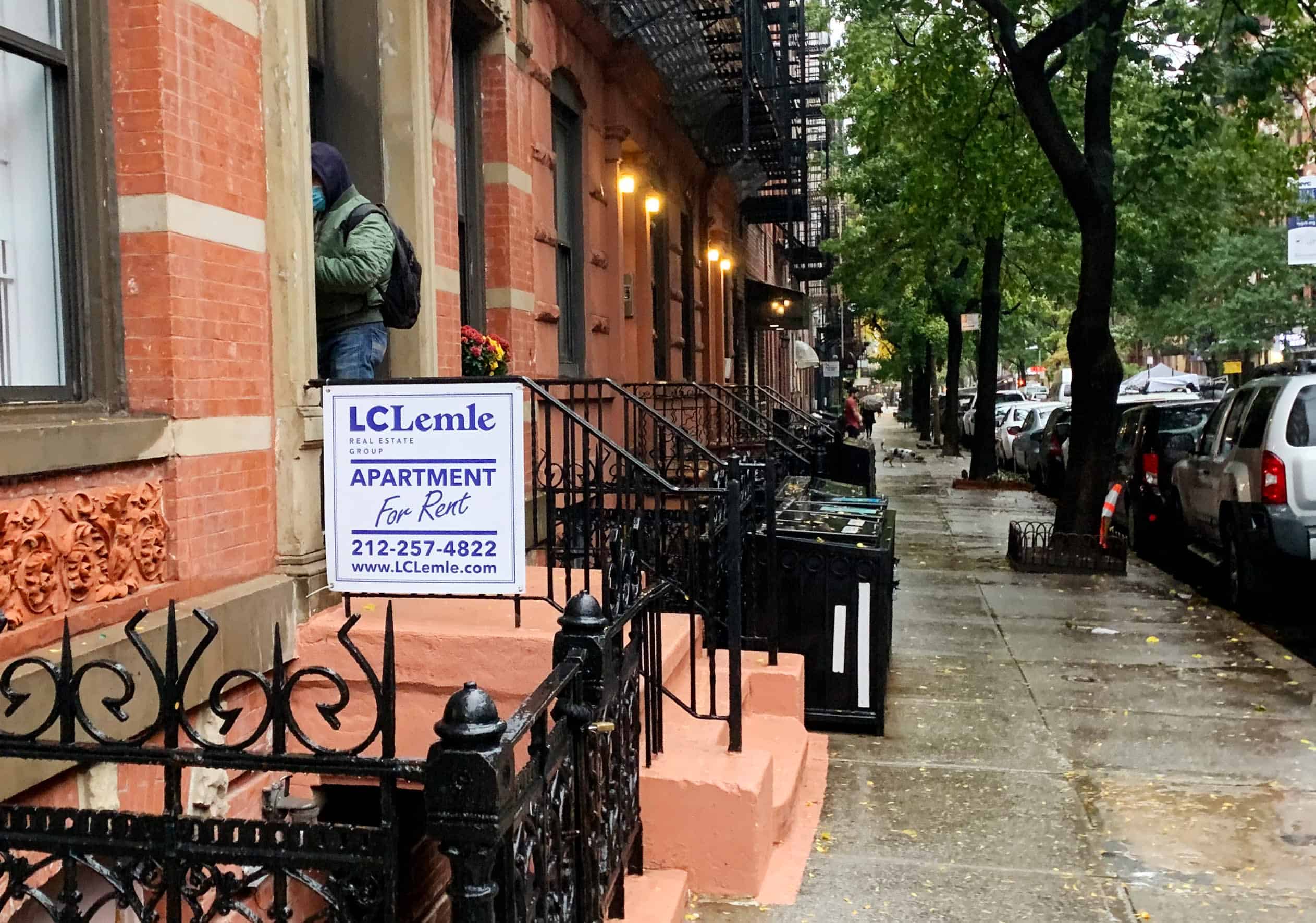Rising rents are squeezing household budgets for millions of Americans. While competitive rental markets clearly favor landlords right now, tenants still have some power when it comes to negotiating better deals. With the right preparation and strategic approach, you may be surprised what concessions you can get from landlords.
Securing an apartment in popular neighborhoods of booming cities can feel daunting these days. Vacancy rates in many areas have dropped below 5%, inventory is limited, and landlords have no problems filling units. Rents have skyrocketed in many downtowns and suburban markets near major employment hubs. Bidding wars have broken out for some listings!
However, renter should not assume they have absolutely no leverage or negotiating power on renewal leases or when signing new rental agreements. Landlords and property managers have their own business interests to look out for. If you understand those interests and make reasonable requests backed by sound financials and housing references, many landlords will work with you, even lowering rents or offering incentives.
Don’t leave money on the table by signing the first lease you are offered. With the right timing, strategic offers, concessions on your end, and polite persistence, you may be surprised what deals you can land. This article outlines seven tips for negotiating lower rents and other rental concessions so your housing costs do not overwhelm your finances.
Quick Summary
The rising rental costs in many markets across the country can put immense strains on renters’ budgets. However, tenants are not completely without options, even when conditions clearly favor landlords in negotiations. By taking the time to thoroughly understand landlords’ core interests, closely analyze prevailing market rent trends using pricing tools and data, strategically timing concession requests to align with market conditions, getting creative with potential terms and concessions to offer, and approaching all negotiations professionally and politely, renters can often successfully secure some relief on housing expenses through lowered rents or other incentives from landlords.
The key is coming well prepared to rental negotiations with information highlighting your strengths as an applicant, comparable unit rate data to anchor discussions, proposed concessions that benefit the landlord, and reasonable requests framed diplomatically. While market forces limit how far landlords can adjust base rents, flexibility on variables like security deposits, amenity fees, installment structures, service exchanges and lease terms offer additional dimensions to secure mutually agreeable deals. Maintaining open and friendly communications throughout negotiations can go a long way towards landing concessions as well. With persistence and the right strategic approach, even hot rental markets still present opportunities to negotiate win-win arrangements between landlords and tenants on housing costs.
Know the Market Conditions in Your Area
Before negotiating, research average rents in your area for similar rental units. Online listings sites and rent price comparison tools can give you an idea of typical prices. You can also contact local real estate agents. If new buildings are being constructed, you’ll likely have more leverage to negotiate since landlords want to fill new vacancies.
Understand the Landlord’s Point of View
When negotiating rent concessions, it is vital to consider the landlord’s motivations and perspective. Fundamentally, landlords aim to find reliable long-term tenants who consistently pay rent on time, keep properties in good condition, and minimize complaints from neighbors. Vacancies and administrative hassles quickly erode profits.
Come prepared to discussions with references, proof of stable employment, healthy savings balances, strong credit reports highlighting responsible usage and on-time payments, and positive endorsements from past landlords emphasizing your care for their properties. Such documentation underscores lower risk and higher desirability as a tenant worth retaining, even at slightly reduced rents.
Additionally, offer to sign longer 12-24 month leases rather than short 6 month agreements. Landlords favor longer tenures to minimize turnover costs. Offer to set up automatic monthly payments as well to ease administrative burdens and guarantee on-time installments. Agree to reasonable usage policies regarding guests and noise to avoid disturbances. In exchange for such cooperative gestures, politely ask whether the landlord can decrease the discussed rent by 5-10% given your reliability. If not, ask what other concessions may be possible.
Put yourself in the landlord’s shoes. By understanding their key revenue and risk considerations, preparing documents that reinforce your strengths as an applicant, and offering concessions that ease administrative burdens, you lay the groundwork for landlords to meet you halfway and offer incentives. The initial rents advertised online or on listings may have some flexibility when strategically approached.
Time Your Request Carefully
When vacancy rates are high, landlords may be more willing to make a deal to fill units, especially before school session starts if you live in a college town. Ask if they have any move-in incentives or discounts for certain amenities you may not use like a pool or gym. Be reasonable and friendly when you ask for slightly reduced rent.
Offer Concessions Like Prepaying Rent
Landlords appreciate consistent cash flow without having to chase tenants. Offer to prepay a few months or the full lease term if the landlord lowers the rent. Or offer to pay via automatic monthly bank transfers so the landlord gets rents paid on time without fuss. Any extra assurances you offer can boost negotiations.
Volunteer for Less Pricey Units
If some units have fireplaces, extra bathrooms, smarter kitchens, more modern amenities or better views than others, offer to forego higher-end unit features in exchange for lower rent in one of the more affordable apartments. Just make sure it will still meet your basic needs.
Offer Your Special Skills
Landlords have to handle building maintenance, administrative tasks and tenant issues. If you have skills in areas like property maintenance, management, bookkeeping or anything beneficial, you can offer your services in exchange for lower rent. Maybe you handle social media posts, hallway painting touch ups or keeping common areas tidy.
Ask for Incentives Over Discounts
While market forces sometimes prevent landlords from reducing advertised rental rates below certain thresholds, especially in large multi-unit communities, there is often still room for negotiating concessions through incentives. Landlords want to fill vacancies, cultivate positive reputations, and reduce administrative headaches. Get creative in seeking mutually beneficial incentives when rents remain stuck at list prices.
For example, many large complexes offer new tenant move-in discounts and referral bonuses around 10-15% to incentivize filling units during slower seasons. Time lease start dates strategically. Property managers also have more flexibility reducing upfront costs via lower security deposits, amenity fees, and parking charges which don’t affect monthly rents. Offer to pay these via auto-deduct along with rent to ease collection.
Additionally, while base rents may be fixed, landlords frequently discount first or last months’ rents, offer a month free after a year of on-time payments, or reduce fees for bundling rental insurance. Especially for privately owned units, offer to paint/clean yourself or barter useful skills (e.g. marketing, maintenance, administrative support) in exchange for lower move-in costs or a break on the rent. Get creative!
While market rents may be non-negotiable on paper, persistence paired with creative incentives or cost offsets can still often move the needle and lead to considerable concessions from landlords seeking responsible, cooperative tenants.
Consider the Unit Type Carefully
The price you pay in monthly rent can vary widely depending on the size, amenities (washer, dryer, dishwasher, stove, oven, refrigerator, microwave, and type of rental unit. Apartments, especially in multi-unit buildings, generally have lower price points per square footage compared to alternatives. Studios and single units command less rent than double. Furnished short-term, on the other side from unfurnished, corporate rentals draw premium rates.
On the more affordable end, opting to live with roommates in a multi-bedroom house or condo can reduce costs through sharing common spaces. You gain community but sacrifice privacy. Review the rental contract carefully regarding liability for covering rent if a roommate vacates suddenly. Landlords typically require the remaining tenants to cover rent shortfalls.
Townhouse offer spacious floorplans, often with multiple levels, yards, and amenities best suited for small families. The tradeoff comes in responsibly maintaining features like the lawn and snow removal. Ensure you budget adequately for recurring seasonal utilities and services on top of the monthly rent.
Seeking the Ideal NYC Room?
Imagine not just an ordinary room, but a lively community waiting to be called ‘home’. SharedEasy Coliving welcomes you to a new way of living! Discover our stylish, fully-equipped rooms, designed to complement your dynamic New York life.
Make Your Move Now:
Tap “Get Offer” or dial +1 929-575-4767 to explore how SharedEasy can elevate your living experience. Enjoy the convenience of flexible leases, inclusive amenities, and rooms prepped for immediate move-in. Your vibrant NYC community is calling. Become part of the SharedEasy family today!





